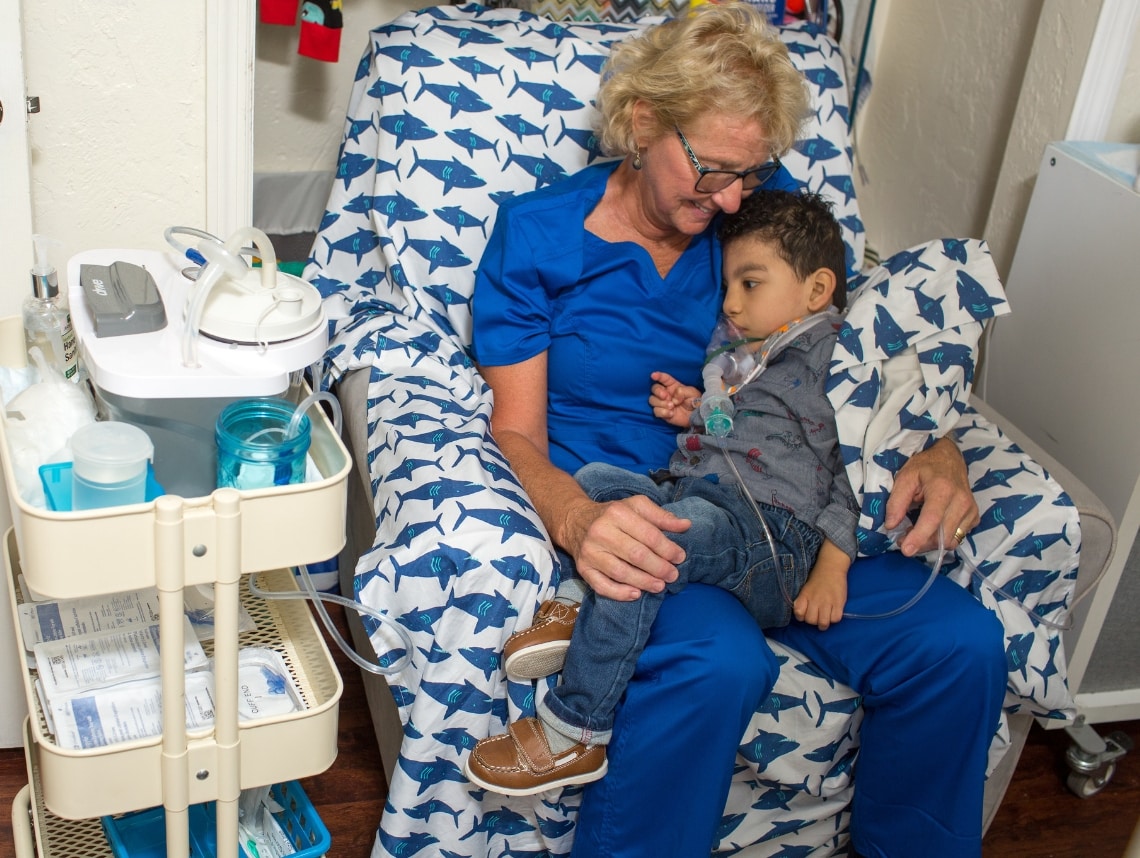Regardless of whether you’re a first-time parent or have been around the rodeo a few times, you probably have a general idea of a timeframe for when your baby should be hitting certain developmental milestones.
You know that at some point, your baby will make eye contact with you, or turn over by themselves and follow you with her gaze, or when your infant will start to crawl. But how do you know if your child is taking a little bit longer than usual but will soon catch up, or if there’s some sort of developmental delay?
It’s important to keep in mind that not every single child hits milestones at the exact same time, but you do need to keep a close eye on it if you start to suspect that your child may be a bit slower to develop than other babies. After all, the first person to notice these delays are parents, and the sooner you catch them, the sooner you can ask your pediatrician about developmental evaluations.
Causes of Developmental Delays in Children
There is no specific cause that can be pinpointed as a definitive culprit for developmental delay.
Risk Factors for Developmental Delay
However, several risk factors increase its likelihood.
Some of the most common are:
- Chromosomal abnormalities
- Chronic illness of mother during pregnancy
- Poor nutrition
- Neglectful parenting
- Extreme poverty
- Exposure to lead
- Premature birth
- Lack of adequate prenatal care
- Drug use during pregnancy
- Fetal alcohol syndrome
- Infections passed from the mother to the child during childbirth
- Congenital heart disease
- Malformation of the brain
- Cerebral Palsy
- Neurological problems
Can a child with developmental delays catch up?
Depending on what caused the delay, the child may catch up with his or her peers.
Other times, the delay is a sign of a potentially permanent disability or dyspraxia, which occurs when a child has trouble coordinating muscle movements.
Types of Developmental Delays
There are different types of developmental delays. A child may have problems grasping objects, walking, thinking, or all of these at the same time.
1. Delays in Motor Skills. Motor skills refer to any type of action that requires a child to move his or her muscles. Fine motor skills refer to smaller actions, such as pointing or picking up items with their fingers. Gross motor skills refer to larger movements, such as crawling, walking, or running.
Signs of Developmental Delays in Motor Skills
Some of the signs include:
- Limp limbs
- Does not roll over by 4 or 5 months of age
- Cannot sit up at about 6 months of age
- Does not reach out for objects
- Has not attempted to walk by 18 months of age
2. Delays in Cognitive Skills. Babies learn very gradually, and it starts by being curious. Even when they’re too young to speak, babies and infants typically will look at a person who’s speaking, or turn around when they hear a sound. Toddlers learn to identify basic colors, count, and identify animals in pictures. If your child is doing none of these, it may be a sign of developmental delay.
Signs of Developmental Delays in Cognitive Skills
Some of the signs include:
- Inability to do simple tasks, such as grab a crayon or a spoon by 2 years of age
- Inability to follow simple instructions as a toddler
- Never uses hand gestures such as pointing, waving, or imitating the movements of adults
- Doesn’t play with toys
- Doesn’t listen or seem to notice when you’re reading them a story
3. Social Skills. This relates to communicating with others. For example: Smiling at people, expressing emotions, getting along or playing with others, or asking for help.
Signs of Developmental Delays in Social Skills
Common signs include:
- Doesn’t engage with people (e.g., playing peek-a-boo, patty-cakes, or other simple games)
- Doesn’t engage in pretend play with family or other children
- Doesn’t make any attempts to communicate
- Doesn’t get along with others
4. Language Skills. This type of developmental delay is the most common in children. Sometimes, it can be related to underlying issues, such as hearing loss or autism spectrum disorder.
Signs of Developmental Delays in Language Skills
Some of the telltale signs of developmental delay in language skills include the following:
- A baby who hasn’t started to babble by around 3 months of age
- Does not imitate sounds
- Does not respond to sounds
- Doesn’t speak at all at one year of age
Treatment Options for Children with Developmental Delay
The earlier the delay is diagnosed, the easier it is to recommend treatment options for the child, such as speech therapy, physical therapy, occupational therapy, or a meeting with a hearing specialist or a developmental-behavioral pediatrician.
Behavioral pediatricians can also coordinate efforts with the child’s family and school to best meet the needs of the child.
Schedule Your Child’s Care Assessment Today
At Care Options for Kids, we understand the unique challenges of caring for a child with basic to medically complex health conditions. Our dedicated team of pediatric home health care nurses is here to support your family with compassionate, expert care tailored to your child’s needs. Contact us today to schedule an assessment and learn how we can help you navigate this journey with confidence and care.
Click here to start your journey to better care.






